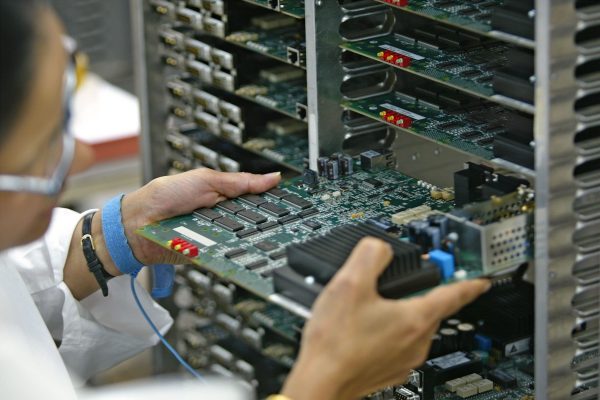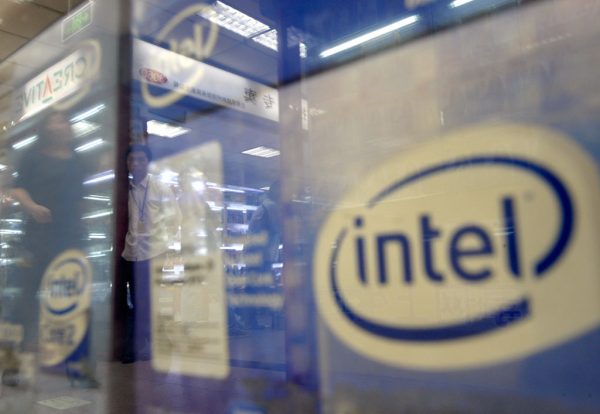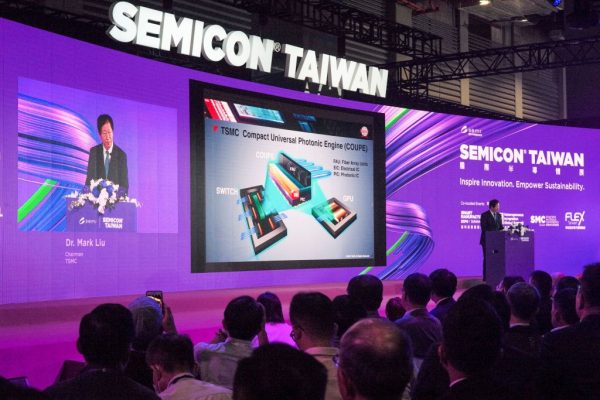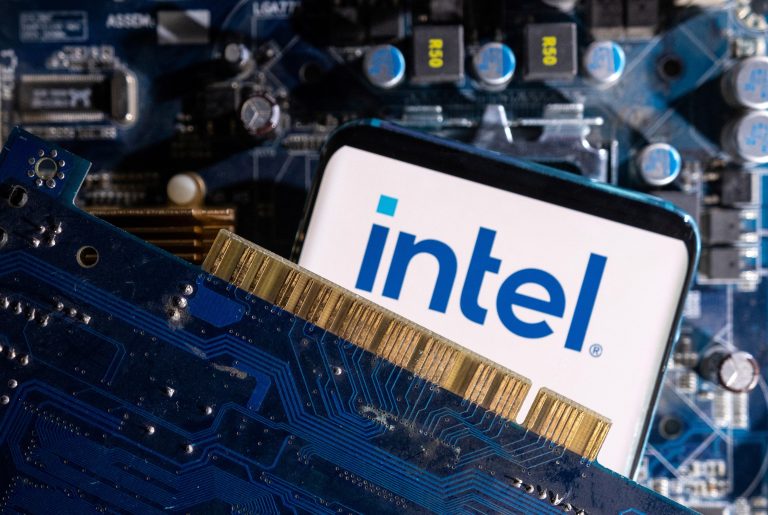On Oct. 16, the Cybersecurity Association of China (CSAC) called for a “thorough review” of Intel products sold in the Chinese market, alleging that the U.S. chipmaker poses significant national security threats.
In a post published on the association’s official WeChat account, (a popular blogging and messaging app in China), the CSAC accused Intel of “constantly harming” China’s national security and interests. It even went further to claim that vulnerabilities in Intel chips could compromise the safety of China’s critical information infrastructure. “Intel’s products continue to engage in actions that harm Chinese interests and threaten China’s national security,” the state-linked entity said.
Though CSAC is not a direct arm of the government, it is closely aligned with the Chinese Communist Party (CCP) and its accusations have the potential to trigger a formal investigation by China’s Cyberspace Administration (CAC).

‘A great security threat’
CSAC’s recommendation for a network security review of Intel’s products marks another step in China’s ongoing efforts to reduce its dependence on foreign technology, particularly in sensitive industries. The association’s post argues that Intel has “major defects when it comes to product quality, security management,” which reflect “an extremely irresponsible attitude towards customers.”
A notable point in their accusations is that Intel’s Xeon processors — widely used for artificial intelligence (AI) tasks — allegedly carry backdoors created by the U.S. National Security Agency (NSA). This, according to the CSAC, represents a “great security threat” not only to Chinese citizens, but to countries around the world that use Intel products.
Success
You are now signed up for our newsletter
Success
Check your email to complete sign up
RELATED: US to Ban Chinese, Russian Tech in Smart Vehicles, Citing National Security Concerns

This scrutiny comes at a time when relations between the U.S. and China are already strained due to a series of trade restrictions, tariffs, and technological sanctions. The U.S. has led efforts to limit China’s access to advanced chip-making equipment, citing concerns over the potential military applications of AI chips. In response, China has been actively promoting domestic alternatives to foreign technology. “Intel products pose serious risks to national security,” the CSAC declared in its post.
Intel has faced similar challenges in China before. Just last year, China’s Cyberspace Administration (CCA) barred domestic infrastructure operators from purchasing products made by another U.S. company, Micron Technology, after its products failed a network security review. If Intel faces a similar security review, it could significantly impact the company’s revenues.
RELATED: European Commission Foresees $100-billion Plan for Private Chip Investment by 2030
Simmering tensions
Meanwhile, China accounted for over a quarter of Intel’s total revenues last year, making it one of the company’s largest markets. Experts note that even a temporary ban could tighten the already constrained supply of AI chips in China, especially as the market struggles to find feasible alternatives to Intel and Nvidia’s advanced processors.

Dan Coatsworth, an investment analyst with British financial firm AJ Bell, pointed out that the tensions between the U.S. and China often lead to retaliatory actions from both countries. “Relationships between the U.S. and China are fragile and the more talk about restrictions on trade and tariffs, the more likely the other side will retaliate in a tit-for-tat situation,” said Coatsworth.
RELATED: HP to Receive $50 Million for Oregon Semiconductor Facility
The allegations against Intel focus on the perceived security vulnerabilities of its products. According to the CSAC, Intel’s processors “contain backdoors” that are embedded in the hardware, potentially allowing unauthorized access to sensitive systems. This claim has raised concerns about the safety of China’s critical infrastructure, which relies on these processors for important AI tasks.
The CSAC also emphasized that the use of Intel chips poses “a serious risk to national security” and suggested that the vulnerabilities might allow foreign entities to exploit Chinese systems and violate user data.
Intel claps back
Intel has responded to the accusations by reaffirming its commitment to security. In a statement released on Oct. 16, the company said it goes to “great lengths to protect our customers.” It added, “Security has long been a top priority for Intel. We look forward to working with the relevant officials on this matter to clarify any questions that may exist and demonstrate Intel’s deep commitment to the safety and security of our products.”

While the Chinese Cyberspace Administration has yet to officially endorse CSAC’s call for a probe, the potential for an investigation looms large. The CAC has the authority to regulate China’s internet industry and data management, and its involvement would represent a significant escalation in the scrutiny of foreign technology companies operating on Chinese soil.
RELATED: Japanese Firms Distancing From China as Hate Incidents Rise
Beijing has long been engaged in a campaign to reduce its reliance on foreign technology, particularly in light of increasing geopolitical tensions with the U.S. The Chinese government has also urged businesses and government agencies to shift towards homegrown alternatives, with a particular focus on securing critical sectors like defense and information technology.

In 2022, for example, the central government ordered state-owned enterprises and agencies to replace foreign-branded personal computers with domestic alternatives within two years.
The call for a probe into Intel products comes against this backdrop of heightened scrutiny on foreign technology. The Chinese government has also pushed its employees to stop using foreign brands, such as Apple’s iPhones, in favor of domestic alternatives like Xiaomi and OnePlus.
If Intel faces restrictions similar to those placed on Micron, it could have a ripple effect across the global technology market. A temporary or permanent ban on Intel products in China could lead to supply chain disruptions and force Chinese companies to seek alternatives, further straining the already delicate relations between Beijing and Washington.







